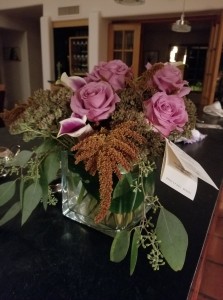For those of you wondering how to pass the dreary days of Droughtlander…let me introduce you to the newest addition to my Methadone List.
The List is my reply to people who cry, “So what am I supposed to read while I’m waiting for your next book, huh?”
The Methadone List is a descriptive list of a number of authors whose work I really like—and thus have no hesitation in recommending. The books on the List span a wide variety of genres (as you might suppose, given my eclectic tastes…), so the odds are good that you might find something appealing in there.
I’m about to send my webmistress a new entry, adding TALES FOR GULLIBLE CHILDREN, by Laura Watkins, to the List, so thought I might give y’all a heads up, both to this book and the rest of the list. To buy TALES FOR GULLIBLE CHILDREN on Amazon:
https://www.amazon.com/Tales-Gullible-Children-Laura-Watkins-ebook/dp/B07NGPG7DY
Do any of y’all recall TALES BY THE BROTHERS GRIMM? Well, this book is a collection of stories about what might have happened if the Brothers Grimm imbibed a lot of Cheetos, Red Bull and a few adult substances and moved to Montana. While it can certainly be read by gullible children (with a good vocabulary), the appeal certainly isn’t limited to them.
SAMPLE from “How Grandpa Dave Became the King of France:”
by Laura Watkins
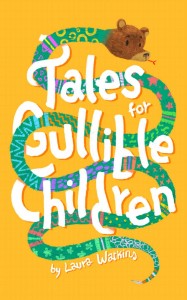 Up to now, children, you’ve heard all about the wild adventures and heroic deeds of your Uncle Joey: how he cheated the devil (twice), vanquished a dragon, and stole the secret of fire from the gods. But did you know, children, that Joe’s father, your Grandpa Dave, was just as intrepid, and had just as many brave exploits as Uncle Joey? No? Gather round, then, and hear the story of how Grandpa Dave became the King of France.
Up to now, children, you’ve heard all about the wild adventures and heroic deeds of your Uncle Joey: how he cheated the devil (twice), vanquished a dragon, and stole the secret of fire from the gods. But did you know, children, that Joe’s father, your Grandpa Dave, was just as intrepid, and had just as many brave exploits as Uncle Joey? No? Gather round, then, and hear the story of how Grandpa Dave became the King of France.
It all began, children in the long, long ago, when Dave and his best friend Bill were younger, and they entered the doubles cheese-eating contest at the Missoula County Fair together. The competition was fierce, and in the end it came down to Dave, Bill, a single block of cheddar, and their mad desire to win it all. As the final buzzer sounded, Dave stuffed the last bite of cheese into his face, raised his arms in victory, and then collapsed onto the stage next to Bill like an elephant seal having a stroke. The audience thundered its applause as Bill and Dave were helped into the bed of a waiting pickup truck and trundled off home to recover.
The next day, Dave was lying on his couch, trying to sleep off his horrendous cheese hangover, when he heard a rap on the door. “Could you get that?” he said to Bill, who was sprawled on the other couch across the room.
Bill paddled his arms and legs in the air, trying to regain verticality, but to no avail. “Doesn’t look like it,” he said.
“OK, hang on. I have an idea.” After some deft maneuvering with a pool cue that had been fortuitously lying nearby, Dave managed to open the door without getting up, revealing two elegant men wearing tailcoats and blue silk sashes across their chests. Dave waved them inside, then poked the door closed with the cue.
“Mr. Koontz? I’m John Wallace, the organizer of the cheese-eating contest at the county fair. You and Mr. Farrell left last night without claiming your trophy, so I’ve taken the liberty of bringing it to you.”
“Hey, cool.” Dave extended the cue towards Wallace, hooking the trophy by the handle and passing it over to Bill. “We’re champions.”
“Erm, yes,” said Wallace. “Congratulations. And may I present Monsieur Gerard, the chairman of the French League of Cheesemakers.” The other man, tall and thin with an impeccably waxed mustache, made a courtly bow. Dave waved the cue in welcome, “Howdy.”
“Bonjour, Monsieur Koontz. And may I say, I hope that you will very much enjoy your sojourn in my country.”
“Huh?” Dave rolled sideways off the couch, landing on all fours, and got to his feet with a herculean heave. Gerard produced a blue ticket envelope from his inside his coat.
“Oui, Monsieur Koontz. I am pleased to be your escort on your voyage to France, which you have won through your efforts last night.”
“OK, back up,” said Bill, from the sofa. “We’re going to France? What the hell for?”
“It’s a collaboration between the Montana Dairy Farmer’s Association and the League of Cheesemakers,” explained Wallace.
“We call it Fromage Across the Ocean,” said Gerard.
“Indeed. We’re seeking to inspire the next generation of cheese producers through a series of grants for travel to the world’s cheesiest regions. And since you’ve proved your dedication to the concept of cheese last night, Monsieur Gerard and I can think of nobody more worthy of a free trip to France for a comprehensive cheese-sampling tour.” Wallace dabbed away the sweat that had sprung from his forehead at the mere thought of so much cheese. “You leave tomorrow morning.”
Dave turned to Bill. “Any plans tomorrow?”
“None that I can think of.”
Dave turned back to Wallace and Gerard. “All right, then. See you tomorrow at the airport.”
Gerard bowed again, Wallace shook Dave and Bill’s hands, and in a twinkling, the two were gone. Dave shuffled into the bedroom, and in a moment there came the sound of a zipper unzipping, followed by thumps and rustling. Bill tilted off the sofa, righted himself with an effort, and rolled after Dave. “Whatcha doing in here?”
“Packing. You think I should take the .270, or the .308?” Dave held up a pair of deer rifles for Bill’s appraisal.
“Take ‘em both. Better to have ‘em and not need ‘em.” (This was a time, children, when baggage on plane rides was free, and you could take as many guns as you wanted. Everything is worse now.)
“Good thinking.” Dave tossed the rifles into the duffel bag on the bed. “Two handguns be enough, you think?”
“Better make it three. Don’t forget the ammo.”
SAMPLE from “How Uncle Joey Cheated the Devil:”
by Laura Watkins
“This story is from the mid-1990s, children, after your Uncle Joey stole the secret of fire from the gods and had his mullet singed off by a lightning bolt hurled by Zeus, but before he vanquished the dragon and rescued the maiden fair (which is another story altogether).
It was a couple of weeks before Christmas, and the only thing in the world that Uncle Joey wanted was a Super Rex Mighty Turbo Ultra RC Racer, one of the finest remote control trucks ever to cruise the streets and parking lots of Missoula. It could spin, it could climb, and it came with dual-action aimable pellet cannons. Unfortunately, it also came with a hefty price tag.
Uncle Joey didn’t get a very big allowance, so he couldn’t afford to buy a Super Rex Mighty Turbo Ultra RC Racer, but that didn’t stop him from dreaming. Every day on his way home from school, he’d stop in front of the big window of the neighborhood toy shop and look at the Super Rex, gleaming in its black and silver trim on a pedestal in the middle of the display. The chrome buttons and antenna of the remote seemed to call Uncle Joey’s name, and he would sigh, imagining himself on the playground, popping wheelies and spinning donuts as his classmates groaned with envy. Then, heavy-hearted, he would turn away, and plod home to his chores.
One day, he lingered a little longer than usual in front of the toy shop. As he prepared to pull himself away, though, he felt a hand settle on his shoulder. “Nice car,” a deep, cultured voice drawled. “A bit expensive, though.”
Joey turned to look. The hand was pale, hairless, and smooth, with long, white, well-manicured nails. It disappeared into the sleeve of a thick wool coat, and as Joey’s eyes traveled upward, he took in the wearer’s neat silk scarf, fastened with a gold and ruby pin, and his gleaming black top hat. The man smiled a smile that contained a few too many teeth. “Do you suppose that Santa Claus will bring it to you for Christmas, little boy?”
Uncle Joey shook his head, unable to break the stranger’s gaze. “No. My dad says toys like that are for kids who are a lot better behaved than me.”
“Mmm. On the naughty list, are you?”The stranger sighed, exhaling the scent of dead flowers. “Ah, well. Perhaps you can have one later, when you have a job of your own. Of course, at that point, you won’t have any time to play with it.” His eyes slid sideways, slyly. “Unless…”
“Unless what?””Joey felt himself oddly mesmerized, fascinated by the stranger’s manner.
“It’s possible that I may have access to a limited supply of complimentary Super Rex Racers, to be distributed to the right little boys.” He crooked his finger, and with a whir, a shiny new Super Rex zipped out of a nearby alley and parked obediently at his feet. “Naughtiness is no obstacle, though there is a bit of paperwork to be done. And of course, a small processing fee.”
Joey frowned. “How much?” He only had a few dollars in his piggy bank.
“Just one.”
“One dollar?”
“One soul.” The stranger smiled more broadly, withdrawing a rolled parchment from his sleeve. “Payable on demise, of course. Play now, and pay later.” A fountain pen appeared in his right hand. “All you have to do is make your mark on the line. Two strokes of the pen, and it’s yours.”
SAMPLE from “Uncle Joey and the Secret of Fire:”
by Laura Watkins
This is a story from the early 1990s, children, long before you were born. It was a dark and miserable time. There were no iPads, our telephones were stuck to the walls of our houses, and all of our games were on boards and all our books were on paper. Yes, like you flush down the toilet. SpongeBob had not even been thought of; instead, we watched Ren and Stimpy, featuring a superhero named Powdered Toast Man and a law enforcement agency called the Royal Canadian Kilted Yaksmen. No, really.
But the worst part of the early nineties, children, was your Uncle Joey’s mullet. Have you ever seen a mullet? It was a hairstyle that seemed to come from the depths of Hell itself: short and spiky on the top, long and greasy in the back. Uncle Joey’s, which he wore with polo shirts and thick aviator-framed glasses, was especially terrible. He looked like a less-hip Jeffrey Dahmer.
Where was I? Oh yes, the nineties. In the nineties, as you may know, fire had not yet been discovered; people ate nothing but cold cereal and, on special occasions, raw hot dogs. These were not very good, but there was nothing else, so people just sucked it up.
Now, back in those ancient days, it was the custom in Missoula to mark the summer equinox with a great festival, the climax of which was a footrace all around the town. The winner would be covered in glory, and would win the lion’s share of the raw hot dogs at that night’s feast. Your Uncle Joey, being a gangly fellow and fleet of foot, had entered the race, and was much favored to win.
Even the gods on Mount Olympus, which, contrary to popular belief, is not in Greece but in the Rockies, bet amongst themselves on the outcome, and by the week of the race, you could not even get two to one on Joey.
What your Uncle Joey did not know, however, was that Bridger, a chubby, bearded young man from Joe’s school, had set his eyes on the crates of raw hot dogs being stacked in the town square, and he had resolved to win both the race and the hot dogs for himself. The night before the race, tiptoeing and cackling softly, Bridger snuck out to the race course and, a hundred yards or so before the finish line, began to dig a hole.
The moon was the only witness to Bridger’s evil deed. Beginning in the center of the path, he dug and dug, down and down, until finally, sweating and exhausted, he saw magma bubble up under his shovel, and he knew that he had reached the earth’s core. He scrambled up and out of the hole, giggling, and proceeded to disguise his handiwork with some branches and leaves.
“Ha ha!” he chortled. “I’ll slip off the course and hide in those trees over there to wait. When Joe comes along, he’ll think he’s won, and he won’t be paying attention to where he steps. He’ll fall in the hole and never be seen again, and I’ll run across the finish line myself. Then all those beautiful hot dogs will be MINE!” Slinging his shovel across his back, Bridger scuttled off back to his mom’s basement, washed his hands, and fell into a sinister sleep.
Now Zeus, the king of the gods, suffered from insomnia, and he was up late on Mount Olympus watching infomercials when his eye happened to catch what the wicked Bridger was doing. “Ho ho!” he said to himself…
Publisher’s Description of TALES FOR GULLIBLE CHILDREN:
It’s the early 1990s, and Missoula, Montana is a town plunged into darkness and chaos. Fearsome bearsnakes slither through the trees, a giant monster swims just below the surface of Flathead Lake, and the actual Devil lurks in an alley downtown, waiting to trick children into selling their souls. Fortunately, Missoula is also home to a young man. A man with a mullet. A man named Joe. (Uncle Joey to his nieces). Together with his family and his best friend Bridger, Joe will cheat the Devil, battle the bearsnakes, and track the lake monster to its lair in a series of hilariously dramatic tall tales. Along the way, they’ll defeat a dragon, rescue a fair maiden, deflate Tom Brady, and even travel to the mystical land of Canada. If you enjoy lying to kids, TALES FOR GULLIBLE CHILDREN is the book you’ve been waiting for.
Warning: book contains some naughty language. But who would you rather they learn it from, the TV, or Uncle Joey?
All excerpts from TALES FOR GULLIBLE CHILDREN are copyright © 2018 by Laura Watkins. All rights reserved. Please do not copy text and paste it elsewhere online or save for your own use. Instead, please share this URL (link) at the top of your browser page. Thanks!
Click here to go to my Methadone List webpage and check out this and other authors that I recommend!
Laura asked me to convey her delight and immense gratitude to all the wonderful readers who have purchased TALES FOR GULLIBLE CHILDREN (and/or read it on Kindle Unlimited), causing the book to briefly achieve the honor of being an Amazon #1 Bestseller, in Myths and Folklore! (My guess is that’s the nearest Amazon could come to describing it, there being no category for Subversive Fiction Set in Missoula, Montana.)
This addition to my Methadone List was originally posted on my official Facebook page on February 26 and 27, 2019,
From Diana’s Webmistress: Note that this ebook by Laura Watkins is sold only in a format for the Kindle reader. But don’t despair if you don’t have a Kindle! Click here to download an app from Amazon for your smart phone, tablet, or computer which CAN convert the Kindle format so you can read it on your device.
Posted on February 28, 2019 5:31 AM
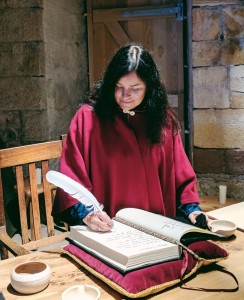
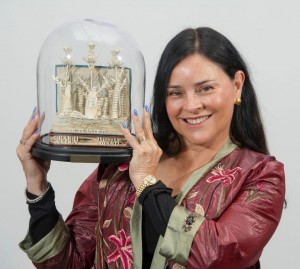
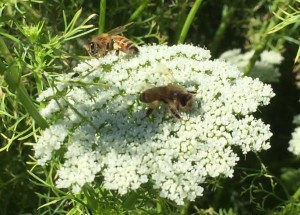

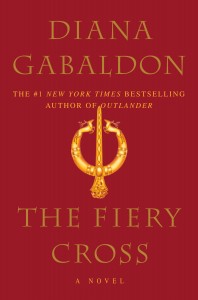
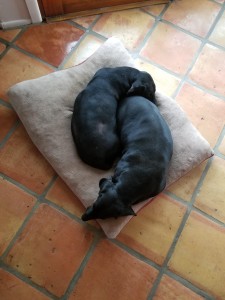
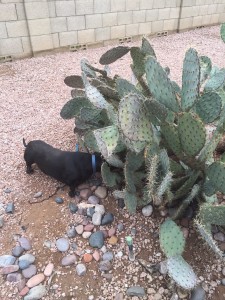
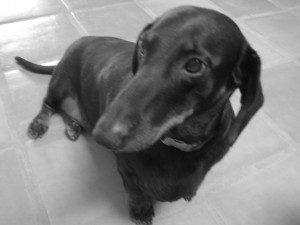
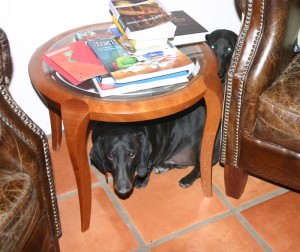

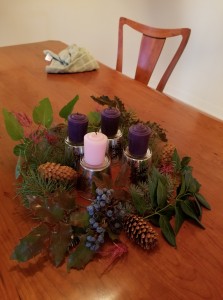 WE WERE LUCKY. The rain held off, and shredding clouds revealed a silver moon, rising lopsided but luminous over the slope of Black Mountain; suitable illumination for an intimate family wedding.
WE WERE LUCKY. The rain held off, and shredding clouds revealed a silver moon, rising lopsided but luminous over the slope of Black Mountain; suitable illumination for an intimate family wedding.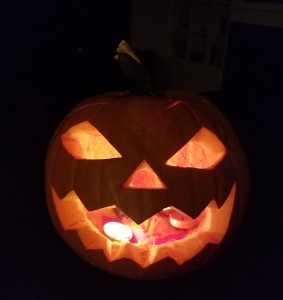 Social Media Hashtags: #DailyLines, #Prologue, #MasterRaymondsBook, #NOitisntwrittenyet, #HappyHALLOWEEN
Social Media Hashtags: #DailyLines, #Prologue, #MasterRaymondsBook, #NOitisntwrittenyet, #HappyHALLOWEEN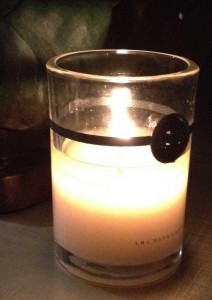 In the Southwest, for those of us of Hispanic descent (or inclination), today and tomorrow are Los Dias de los Muertos—the Days of the Dead.
In the Southwest, for those of us of Hispanic descent (or inclination), today and tomorrow are Los Dias de los Muertos—the Days of the Dead. 